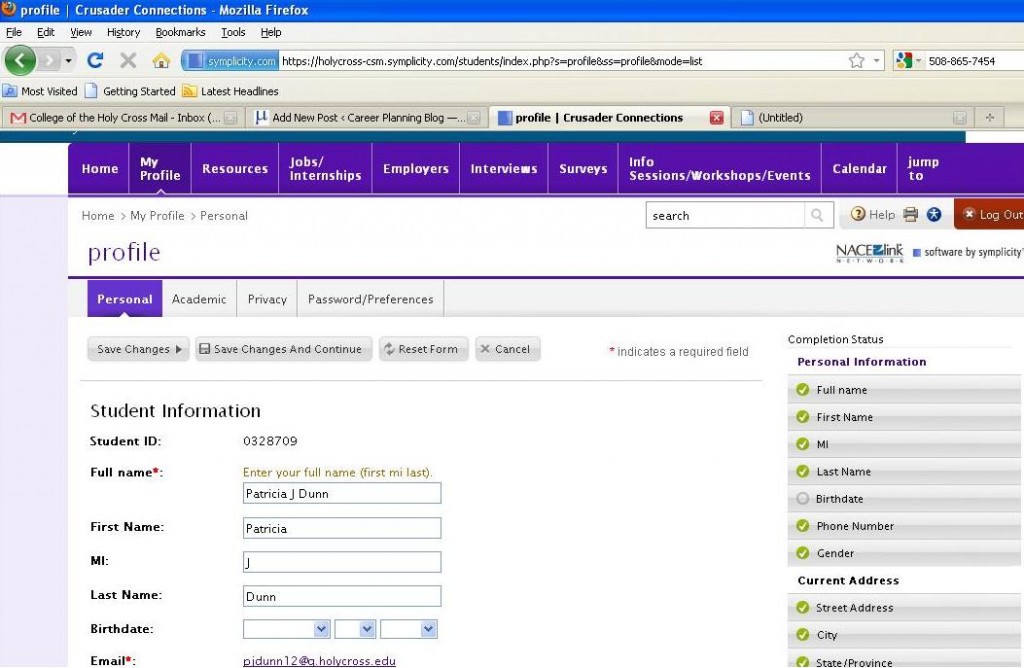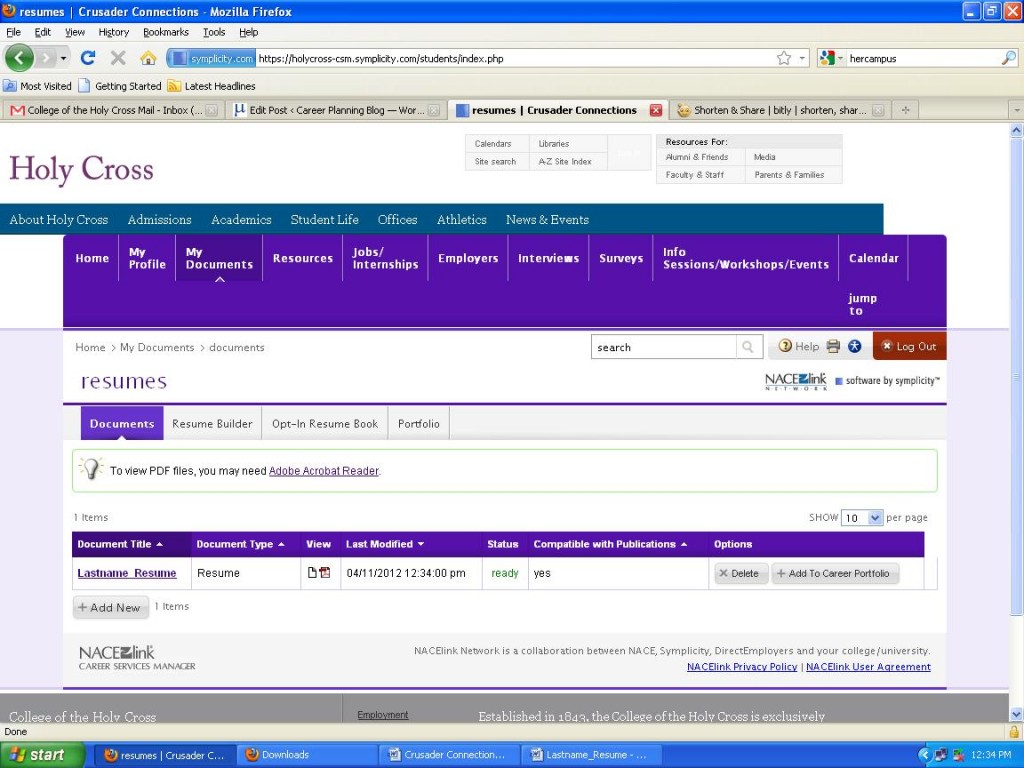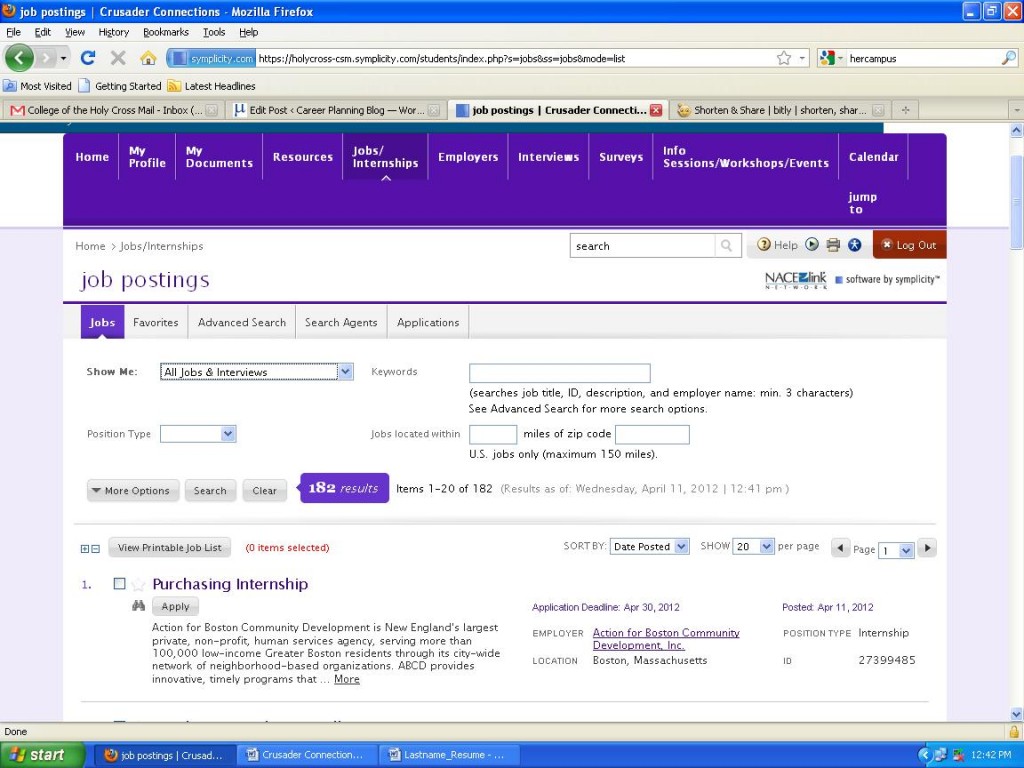WELCOME BACK TO HOLY CROSS!
Although most of us are still busy planning Fall around our syllabi or re-adjusting to the arduous trek up and down Mt. St. James every day, it is never too early to start thinking about Career Planning!
- FRESHMEN: Get involved!
Welcome to your first semester on the Hill! As a first year student, you truly have a “fresh” start and endless opportunities to pique new interests and learn more about yourself. Although concretely setting up your “career path” may seem aggressive for your first semester, there are several ‘second nature’ things you can do to set yourself up for a bright career at HC and beyond.
1.) Get involved on campus: Join 2 or more clubs or organizations. Getting involved helps to expand your interests, while introducing you to a new network of peers. Added Bonus: Campus activities are a great resume booster!
2.) Take interesting classes: Before second semester enrollment, take the time to find classes that really speak to you. Being interested in the material helps you stay engaged and will eventually direct you towards a major if you are undecided.
- SOPHOMORES: Focus in!
Sophomore year is the time to hone in your skills and piece together your achievements.
1.) Create your Resume: Now is the time to either create or refine your resume, as you start to build your professional profile. If you need help perfecting your resume, make an appointment to meet with one our Career Counselors!
2.) Apply to SIP: This semester presents your first opportunity to apply to HC’s Summer Internship Program. Although this program is highly competitive, the application process marks a great way to practice building your resume, cover letter and interview skills.
- JUNIORS: Start your search!
Welcome to the Internship year of college! It’s time to start searching and applying for internships that appeal you.
1.) Apply to SIP: The Summer Internship Program gives qualified students a helpful “foot in the door” to many amazing internships by connecting HC students with established alums.
2.) Search Early: Start browsing different companies’ websites for internship opportunities. Many companies set their internship deadlines in the fall, so have your updated resumes and cover letters ready to go!
- SENIORS: Network, Network, Network!
As daunting as it might seem, senior year is the inevitable prelude to the notorious “real world.” Although denial is one way to approach this problem, the better way is to set your self up for success through networking.
1.) Stay in Touch: If you had an internship or job this summer, stay in touch with the people you met! Maintaining a dialogue keeps you fresh in their minds and helps for recommendations later down the road.
2.) Reach Out: Use the Career Advisors Network to reach out to alums in career fields you may pursue. (http://bit.ly/gG5PFM) Also, keep an eye out for an invitation from the Alumni office to join the Alumni Online Community where you can search for additional contacts. Remember, reaching out means learning more about specific jobs or companies, not blatantly asking for jobs!
3.) Network in-person: Use events like the Holy Cross Career Fair (September 25th) to meet new contacts and demonstrate your professionalism. Extra Edge: Have business cards printed and give them to professionals you talk with!
Have questions or want help with these quick tips? Come to Career Planning in Hogan 203 for Drop-in hours or set up an appointment to meet with one of our amazing Career Counselors!
In addition, Career Counselors will be available to answer any quick career questions during Virtual Drop-in Hours, which start up Monday, September 17th!












